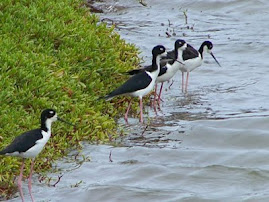 When we studied Jeannie Fulbright’s book Flying Creatures of the Fifth Day (Apologia Science Young Explorers) several years ago, my goal was to provide my elementary aged children with an interesting science curriculum. I never could have imagined that the curriculum would light a fire in my children’s hearts about birds, and lead our whole family into the hobby of bird watching. The lessons learned in this book were a catalyst, causing my children to hunger for more knowledge.
When we studied Jeannie Fulbright’s book Flying Creatures of the Fifth Day (Apologia Science Young Explorers) several years ago, my goal was to provide my elementary aged children with an interesting science curriculum. I never could have imagined that the curriculum would light a fire in my children’s hearts about birds, and lead our whole family into the hobby of bird watching. The lessons learned in this book were a catalyst, causing my children to hunger for more knowledge.
Since then, we have enjoyed several of the books in the Apologia Young Explorers series. Mrs. Fulbright manages to teach a lot of great science in an interesting, engaging way. The pictures and text are captivating and understandable even for my 4 year old, and the experiments were simple enough that my 10 year old could do many of them by himself when necessary. Apologia takes an immersion approach to science, focusing on one topic for an entire year. Through immersion, kids can really learn a lot about a particular area of science, as well as the scientific method.
The Young Explorers series is appropriate for Kindergarten through 6th grade science. It incorporates several excellent components. In addition to the great photos and clear information, there are opportunities for the child to narrate back what they have learned. We retain what we can explain, and this element helps solidify the information in the child’s mind.
We have also really enjoyed using Nature Notebooks. Each book in the series gives very clear instructions for making and keeping a notebook of pictures, drawings, poems, original writing, and other “findings” that relate to the material studied. The notebook is very personal to each child, enjoyable to make and a great keepsake for years to come.
My oldest son has moved on to Jay Wile’s Apologia science for older kids. This curriculum is available as a textbook, but he prefers the full-course CD Roms, which interface like a website. He enjoys doing all his reading online, clicking here and there for video demonstrations and audio pronunciation of terms.
No matter which series you choose, a list of everything that will be needed for the experiments is conveniently included in the beginning of each book. I appreciated that most items were easily gathered from around the house. Science experiments added greatly to our understanding in each book, and none of them seemed like the “busy work” we had experienced in other science curriculum.
Other highlights include the incorporation of Latin scientific terms, answers in the back of the book for all questions, and a reproducible sheet where experiments can be described (procedure, hypothesis, results, etc). Dr. Wile and Mrs. Fulbright both write from a Christian, creationist, young-earth perspective. Young Explorers books each have internet helps provided, with links to tons of sites that provide more information. My dyslexic child also appreciates that the jr. high and high school level courses are available with an audio recording, so he can listen to the text while he reads.
Apologia Academy has launched online courses, and Apologia also offers pre-recorded lectures (in an on your own online class option) for all science classes, 7th grade and up.
I can’t imagine a better science curriculum for my children.
